

Eric Jerome Dickey

Before Netflix and Chill, there was ‘Grab a Book and Chill’. If you are like me and you have been an avid reader of black novels for a long time you should be acquainted with the works of Eric Jerome Dickey. From legendary exclusive black literary book club, Black Expressions to your local library – Dickey has always been easily assessable to the public. Before reality TV, Dickey wrote the characters that we could relate to through a realistic and sometimes comedic narrative. Dickey shared some of his time to talk about his new book and how social media has affected black authors.
1. How are you able to reinvent characters that hold the reader’s attention? It seems you have a formula that works best for you.
EJD:I never really thought about that. I think of it as allowing the character to grow, but I do have a hand in deciding the path they take. LOL. For Blackbirds, I took in to consideration the histories of Ericka, Kwanzaa, and most of all, Destiny. Where they were some years later had to make sense, their growth as black women. In the initial novels, they had had conflicts, watershed moments, but they had moved on with their lives. Still, the past is never done with you.
2. Are there any topics that you haven’t talked about that you will eventually or do you feel like you’ve covered everything?
EJD:I don’t think anyone can cover everything. I read about problems in Africa and problems in the Middle East and problems with my local neighborhood watch. All are fodder. It’s more a matter of having the time to get around to other ideas, the ones that stick, the ones I am willing to commit to for the duration of a novel. It takes a while to write a novel, and during the process, many ideas come to me, but not all are used. Some don’t fit the current storyline, some are too complicated, some suck, and a few, the ones that aren’t dated, might end up being exploited somewhere down the road.
3. Eric Jerome Dickey, you’re such a pillar in the black literature world – how do you keep up with the times? Do you find that social media has worked in your favor or against?
EJD:Social media is interesting. I never thought too much (mis)information would be the thing people craved. So far as for work, it’s cool, convenient, easy, and accessible—a good way to take the pulse of the end user before launching a product, seeing if demand is there and getting feedback, cutting out the middle people. You can put your covers out there, test to see what the readers respond to. Same for samples of the novel. On another hand, it can be uber addictive, a drug for some, and people can end up being distracted all day and not being as productive as the generation before. Tweeting ain’t writing a book. Neither is trolling your crush or posting videos of cute kittens all day.
4. For a lot of people (myself included), you were one of the first African American authors that encouraged me to binge read – are there any writers or authors you appreciate or look up to?
EJD:That list is longer than a line at the DMV and Disneyland combined. I admire so many authors, and for different reasons. King. Koontz. Mosley. Larsson, Coben. Angelou. Morrison. McBain. I look at Stephen King’s work, and it reminds me to keep pressing forward. Compared to his body of work, I am but a drop of rain in the ocean. Many I admire for their storytelling, some for prose, some for the genre. I love sci-fi, but I’m not sure (due to time) that I can write sci-fi the way I would want to, on the level it deserves. Mine would be more like Cloverfield 13, lots of human interaction in a dystopian setting, and maybe some aliens in the 3rd act.
5. Sexuality, love, confidence and hope seems to be a reoccurring theme in most of your books. Do you ever feel like you’re remixing an old story or book or do you feel that there’s multiple ways to approach the same topic?
EJD: None of those ever grow old. SL&C are a part of everyone’s life, no matter the culture, no matter the occupation, no matter the preference, no matter the politics, no matter the social strata. It was part of Highsmith’s work, Rand’s work, and Nin’s autobiography, of Nabokov’s masterpiece, of Duras’s tale in north China, Josephine Hart’s work, and a huge part of all of Steele’s work. I don’t try to remix, not in the sense of copying off my own paper during a test. I neither want to become a farce, nor a caricature of myself. I always look forward, try to imagine the new characters and their lives relative to the era in which they live, and to their moments before, based on their lives, how they have been socialized, and their challenges.
There is no such thing as a dull topic, only dull writers. Any topic can be hit from many angles. Sue Grafton is hitting her style of mystery from a new angle for each letter of the alphabet. Koontz and King have done the same with horror. Walter Mosley has done the same with several detective series. There is no right or wrong. Make the soup how you like it. Some sci-fi has aliens, and some has none, only human interaction in some unique way. Some is all about technology, man playing God, or being Frankenstein, creating an uncontrollable (metaphorical) monster. We’re always looking for the right combination, the perfect combination. We want to hit the notes to create the perfect tone. We want to make a novel sing a song you want to hear again and again. Some works havevery little mystery, and be more about character, while others are more about mystery than character. Some books contain little romance; others have a lot of romance. It just depends on an author’s take on the characters, on what the writer chooses to highlight.
6. How do you prepare to write a book? Do you go on a vacation; do you isolate yourself for a while? Explain your process on creating a novel.
EJD: I just wake up and go, the same as I have done with every other job, pretty much. If it’s a novel that requires me to be on location in another country, like for the Gideon series, or being in Odenville, Alabama, to work on Genevieve, I get there, set up shop, write as I research, let the environment and culture help mold and give authenticity to the tale. Writing is a solitary sport. You have to get in the environment that works for you. Being away from distractions, but having access to distractions to help break up the day, that usually works for me. I tend to get pretty intense (focused) and am not a good person to be around when I’m in the middle of a novel. Everything gets tuned out. Tunnel vision. I forget to eat. LOL. Throw me a sandwich and keep it moving. But when it’s done, I feel a sense of accomplishment. Writing a novel is no small task. Hats off to all the writers. I feel your struggle. I know your pain.
7. To date, what’s your favorite novel? What do you consider your favorite baby? How do you determine success?
EJD: By me or someone else? Stephen King’s Green Mile and Walter Mosely’s Devil in a Blue Dress came to mind when I read the question, along with Steig Larsson’s The Girl with the Dragon Tattoo. As for mine, the next one I write is always my favorite.
8. I remember reading so many of your books via Black Expressions book club. Now in the age of Kindle and e-books do you still feel the connection with fans?
EJD: It was different. Back then, you didn’t have contact until you went on tour. Now people contact you every day. Different people are attracted to different novels, and that’s great. People inbox me or tweet where they are reading a novel with their reactions. Years ago, that wasn’t possible. People who have never met and will never meet are online chatting about your work, either individual novels, or your body of work.
9. Would you want to bring your novels to a TV series? Or do you think it’s best to keep all your works in books?
EJD: It’s always good to have a novel evolve into a new medium. I would love a series on Netflix. A thing where each season we moved to a new novel in the same genre. From Sister, Sister, then to Friends and Lovers, to Cheaters, and time jump to The Blackbirds. Or the Gideon series with the intensity of their Daredevil series.
10. Tell us about your new novel, The Blackbirds. Can you describe it in 3 words?
EJD: Best friends forever.
11. What advice would you give to younger writers who wish to create a loyal audience? What advice do you have for black aspiring writers and authors and what roadblocks have you endured in the book Industry being a black man?
EJD: I can’t say how to create a loyal audience. Who can make anyone become loyal? We’re in a short-attention-span, pickled society. They love you, then get tired of you and move on the next new thing in a heartbeat. I always say focus on your work, on the craft, on finding your voice, and hopefully you will build a following. With each novel, you will reach someone who has either never heard of you or never read your works before. There are no guarantees.
From my perspective, you feel the difference as a black writer. It’s America. Turn on the news. America is what America is. I digress. Too much to write regarding that topic, and again it would only be my opinion, and that and a quarter will get you bubble gum from a machine. And for me, it’s still early in the morning, and I need food. Take care!



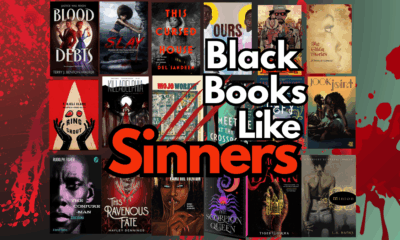
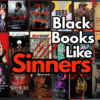
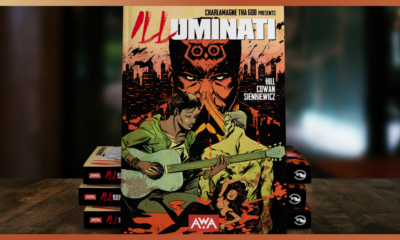

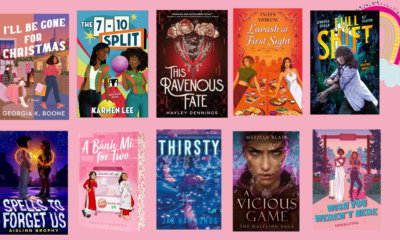

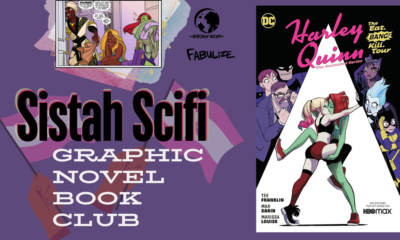

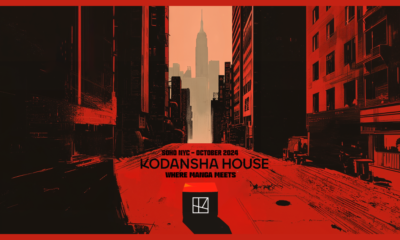

Pingback: Eric Jerome Dickey Talks About Being a Writer on Social Media and New Book, 'The Blackbirds' - Democratsnewz